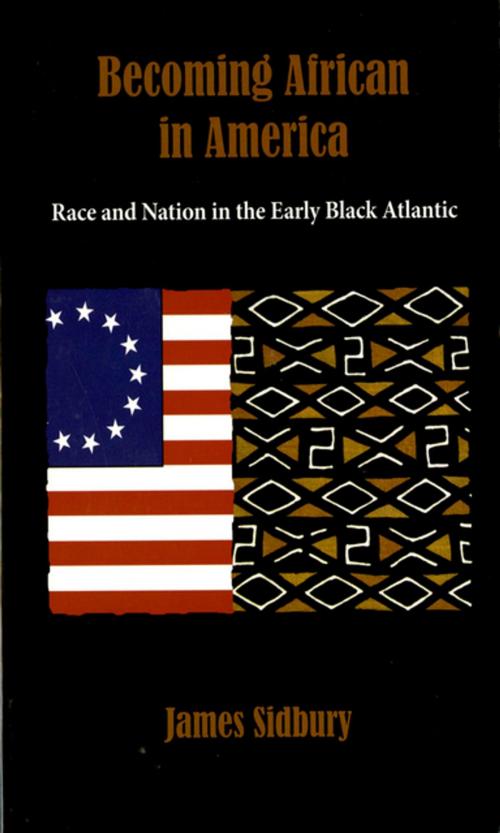Becoming African in America
Race and Nation in the Early Black Atlantic
Nonfiction, Social & Cultural Studies, Social Science, Cultural Studies, African-American Studies, History, Americas, United States| Author: | James Sidbury | ISBN: | 9780199886418 |
| Publisher: | Oxford University Press | Publication: | September 27, 2007 |
| Imprint: | Oxford University Press | Language: | English |
| Author: | James Sidbury |
| ISBN: | 9780199886418 |
| Publisher: | Oxford University Press |
| Publication: | September 27, 2007 |
| Imprint: | Oxford University Press |
| Language: | English |
The first slaves imported to America did not see themselves as "African" but rather as Temne, Igbo, or Yoruban. In Becoming African in America, James Sidbury reveals how an African identity emerged in the late eighteenth-century Atlantic world, tracing the development of "African" from a degrading term connoting savage people to a word that was a source of pride and unity for the diverse victims of the Atlantic slave trade. In this wide-ranging work, Sidbury first examines the work of black writers--such as Ignatius Sancho in England and Phillis Wheatley in America--who created a narrative of African identity that took its meaning from the diaspora, a narrative that began with enslavement and the experience of the Middle Passage, allowing people of various ethnic backgrounds to become "African" by virtue of sharing the oppression of slavery. He looks at political activists who worked within the emerging antislavery moment in England and North America in the 1780s and 1790s; he describes the rise of the African church movement in various cities--most notably, the establishment of the African Methodist Episcopal Church as an independent denomination--and the efforts of wealthy sea captain Paul Cuffe to initiate a black-controlled emigration movement that would forge ties between Sierra Leone and blacks in North America; and he examines in detail the efforts of blacks to emigrate to Africa, founding Sierra Leone and Liberia. Elegantly written and astutely reasoned, Becoming African in America weaves together intellectual, social, cultural, religious, and political threads into an important contribution to African American history, one that fundamentally revises our picture of the rich and complicated roots of African nationalist thought in the U.S. and the black Atlantic.
The first slaves imported to America did not see themselves as "African" but rather as Temne, Igbo, or Yoruban. In Becoming African in America, James Sidbury reveals how an African identity emerged in the late eighteenth-century Atlantic world, tracing the development of "African" from a degrading term connoting savage people to a word that was a source of pride and unity for the diverse victims of the Atlantic slave trade. In this wide-ranging work, Sidbury first examines the work of black writers--such as Ignatius Sancho in England and Phillis Wheatley in America--who created a narrative of African identity that took its meaning from the diaspora, a narrative that began with enslavement and the experience of the Middle Passage, allowing people of various ethnic backgrounds to become "African" by virtue of sharing the oppression of slavery. He looks at political activists who worked within the emerging antislavery moment in England and North America in the 1780s and 1790s; he describes the rise of the African church movement in various cities--most notably, the establishment of the African Methodist Episcopal Church as an independent denomination--and the efforts of wealthy sea captain Paul Cuffe to initiate a black-controlled emigration movement that would forge ties between Sierra Leone and blacks in North America; and he examines in detail the efforts of blacks to emigrate to Africa, founding Sierra Leone and Liberia. Elegantly written and astutely reasoned, Becoming African in America weaves together intellectual, social, cultural, religious, and political threads into an important contribution to African American history, one that fundamentally revises our picture of the rich and complicated roots of African nationalist thought in the U.S. and the black Atlantic.















